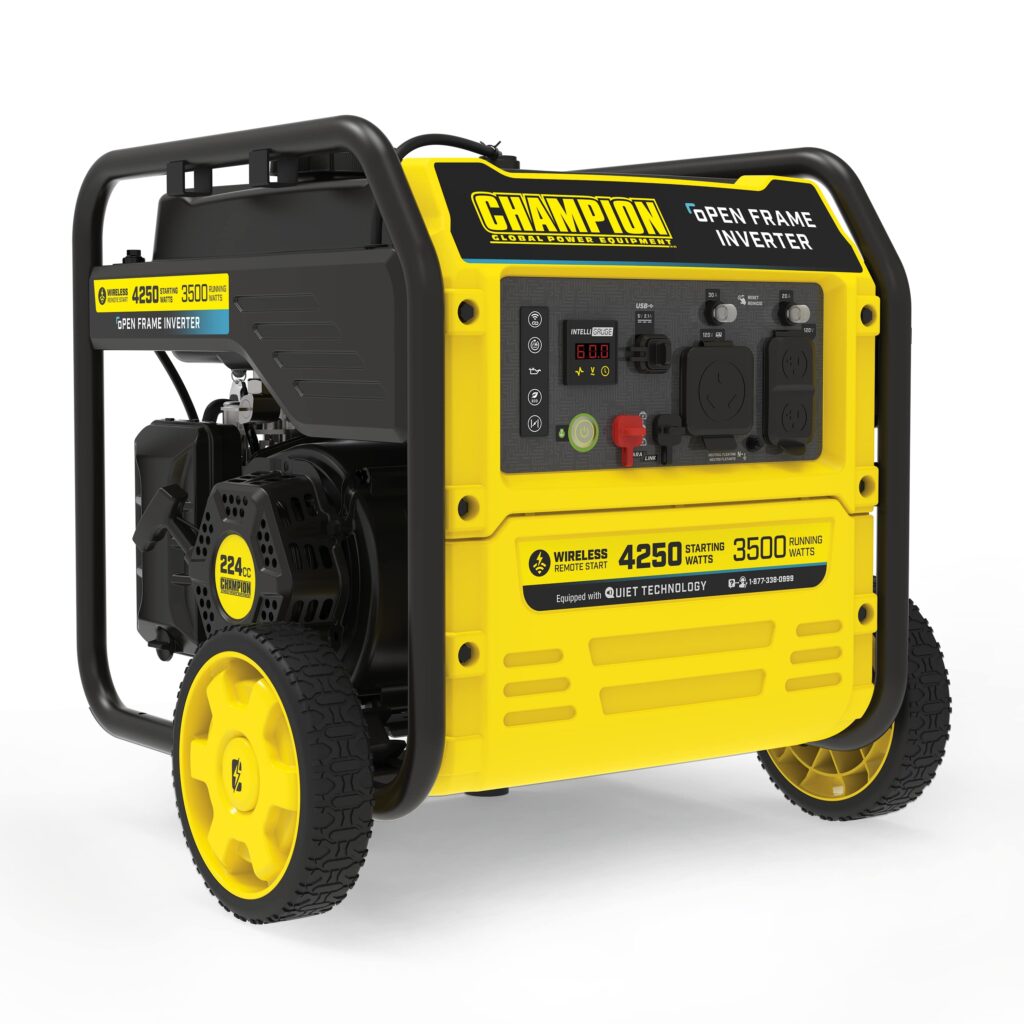Champion generators are highly rated, so we know yours comes through for you all the time. Like all generators, it makes noise when it is running, and this can be a bother. In this article, we will give you five easy tips to quiet your Champion generator. But before we explore those tips, let us find out why generators make noise in the first place.
philips avent babyphone scd711
Iowa State Football Uniforms
flo bayan polaris ayakkabı
sendrat
runifico
flo bayan polaris ayakkabı
banchero orlando jersey
bester frauenrasierer
banchero orlando jersey
aguilas cibaeñas jersey
nachttisch hemnes
drcastelar.com
hottubtravels
49ers jersey
Why Do Champion Generators Make So Much Noise?
 When you switch on the engine of a generator, it will run and turn an onboard alternator. This alternator, also known as a gen head, works to convert mechanical energy into electricity. During the time that the engine is running, it makes a lot of noise.
When you switch on the engine of a generator, it will run and turn an onboard alternator. This alternator, also known as a gen head, works to convert mechanical energy into electricity. During the time that the engine is running, it makes a lot of noise.
A generator also produces mechanical noise caused by the vibrations of various structural parts and components as the engine runs. Noise can also come from the cooling fan as it moves air across the engine.
sgrassatore chanteclair carrozzeria auto
amazon bodenfliesen bunt
jordan retro 3
claudie pierlot outlet
claudie pierlot outlet
accessoire cheveux annees 30 chez amazon
adidas shoes new design
air max 97 trainers summit white bleached desert sand
věšák na klíče domeček
věšák na klíče domeček
rasoio anti irritazione
une sneaker
cazadora estilo motero hombre
amazon bodenfliesen bunt
The generator exhaust system also produces a lot of noise as it works to discharge heat from the engine. Generally, the amount of noise a generator produces depends on the size of the engine and the load. It could also be because of loose nuts or bolts that increase vibrations and make the generator louder.
How Can You Make Your Champion Generator Quieter?
The Champion generator is your best bet if you are looking for a generator that is easier to use and has greater power output. However, just like any other power generator, it can be loud. Do not worry, because there are easy ways you can quiet your Champion generator.
1. Position Your Exhaust Pipes Tactically
Quieting your Champion generator could boil down to something as simple as the direction that the exhaust pipes face. The side of the generator with the exhaust pipes needs to face away from your house or living area. Some generators are built in such a way that the pipes face upwards.
This is the simplest way of quieting your Champion generator because when the exhaust pipes face away from you, they will direct the noise away from you.
2. Keep Your Generator at an Ideal Location
You will do well to keep some distance between your living area and your Champion generator. The further away from you, the less the noise that gets to your ears. If you have long extension cords, it will be your first step to quieting your Champion generator. Keep the generator far from your living area, and you will be at peace when it is running.
This will work best if you have a big lawn, and you can have it as far away from the house as possible. If you have neighbors, you have to keep your generator at a spot not so close to their home to avoid inconveniencing them. You do not want the kind of trouble this could bring!
3. Choose Soft Surfaces
Do you wonder what surfaces have to do with this? Well, we know that soft surfaces dampen sound while hard surfaces amplify it. Here is how it works. Softer surfaces are porous, not dense. It means that soundwaves will penetrate them and get absorbed inside, unlike hard surfaces that reflect sound.
Once you have identified a spot outside, place your generator on the ground where there is dirt or grass, as this will lessen the noise the generator produces. By all means, avoid hard surfaces like wood or concrete because these will only increase the noise. If you must put the generator on a hard surface, place it on a mat which will help to absorb the noise down by a couple of notches.
4. Use Plywood Boards to Deflect Sound
You can use this method together with tips 2 & 3 above. After you have moved the generator away from the house and found a soft spot for it, you can muffle the noise further by using sheets of plywood. This is an easy way to quiet your Champion generator. You only need to measure the sides of your generator, cut your plywood boards then prop them against the side of the generator. Your generator will be quieter because the plywood boards will deflect the soundwaves into the ground.
One thing you have to remember is to leave room for airflow and for the exhaust to breathe. Boards are flammable, and you don’t want them on the side with the exhaust. To avoid a fire accident, prop a non-flammable material like drywall on the side of the generator with the exhaust.
5. Cage Your Champion Generator
 You can quiet your Champion generator by building a cage around it. A cage is a box or enclosure that will work the same as plywood props around your generator. It will contain soundwaves from the generator, limiting noise.
You can quiet your Champion generator by building a cage around it. A cage is a box or enclosure that will work the same as plywood props around your generator. It will contain soundwaves from the generator, limiting noise.
You can make your box, or you can buy one. If you decide to make your own, you must ensure you cut holes into it to allow airflow. This is important because you do not want the heat generated to damage your generator. Cut holes on the side of the box where the exhaust is.
Make sure that you build the box using materials that will insulate sound. Medium-density fiberboard would do a great job. Make sure that you pile the sides of the box with foam mats and mass-loaded vinyl using green glue. These materials will effectively soundproof your generator box.
Conclusion
As you can see, you can use five easy methods to quiet your Champion generator. You can redirect the noise by positioning the exhausts away from you, keep the generator far away from your living area, put your generator in a soft spot, and deflect the noise using plywood or a cage. The good thing is that you can use a combination of these hacks for maximum noise reduction. According to ghostwriter klausur such noise insulation is very helpful against noisy neighbors or noise from outside, also suitable for recording studios.
